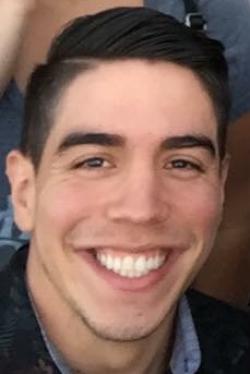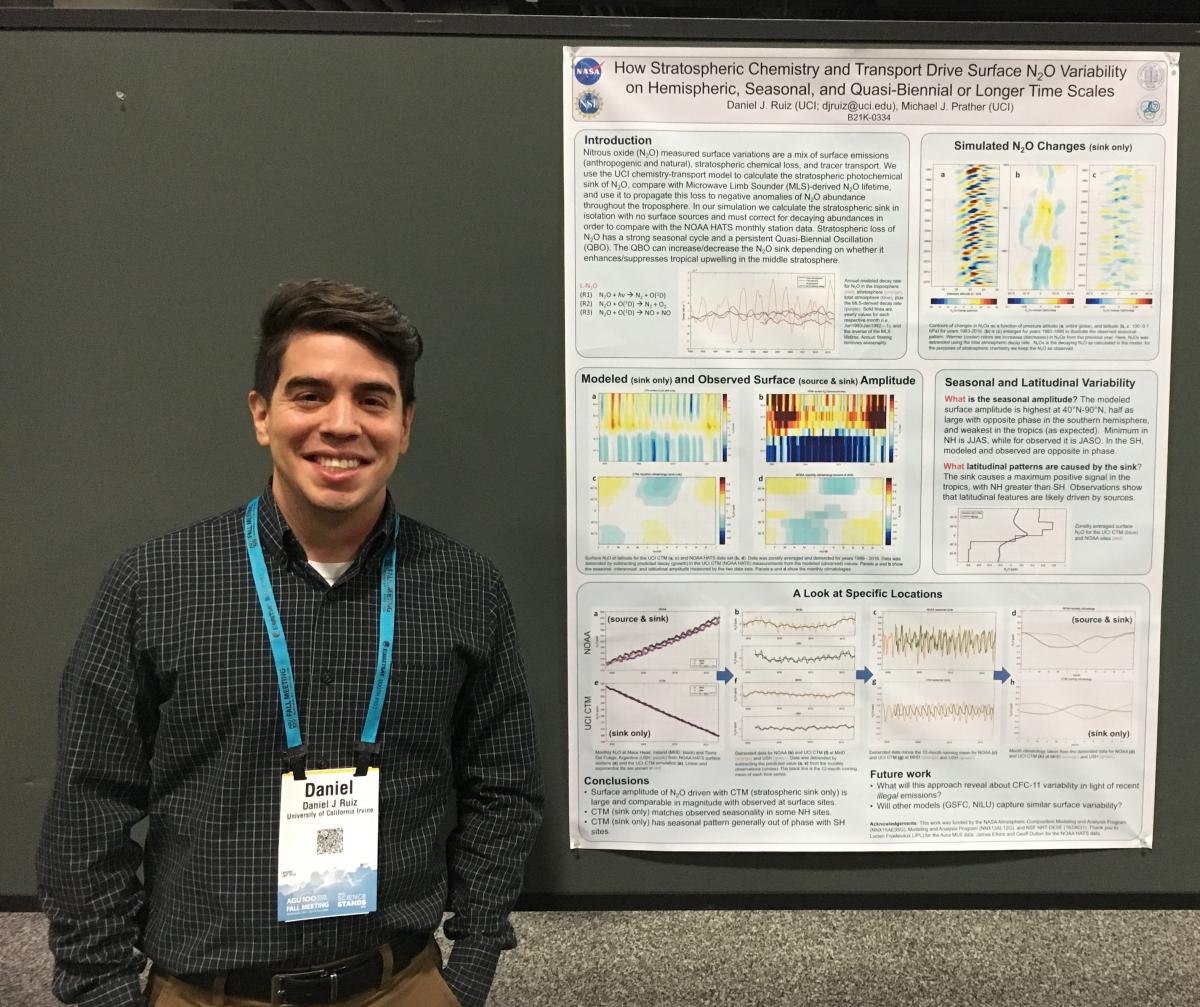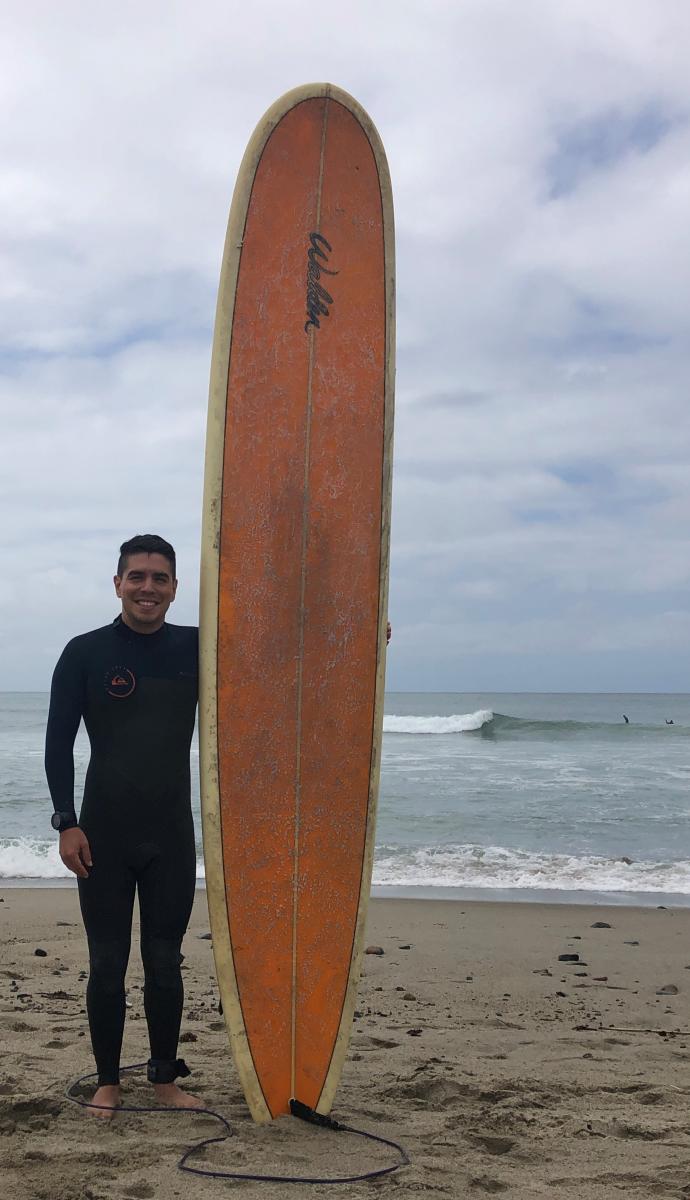The Next Wave – Daniel Ruiz
Daniel Ruiz is curious — about the world, what it’s made of, and how it works. This curiosity led him to pursue a degree in Chemistry at Loyola Marymount University, where he immediately became interested in Environmental Chemistry and began research in Dr. Nicole Bouvier-Brown’s lab to supplement his studies.  He gained applicable experience in a wet lab that utilized specialized instruments such as GC-MS. More importantly, it was through Dr. Bouvier-Brown’s mentorship that Daniel learned and became passionate about human influence on the environment, climate change, and how this will affect communities around the world, often disproportionately. He began to see the interconnectedness and to understand not only how the world works, but how humans fit in this system.
He gained applicable experience in a wet lab that utilized specialized instruments such as GC-MS. More importantly, it was through Dr. Bouvier-Brown’s mentorship that Daniel learned and became passionate about human influence on the environment, climate change, and how this will affect communities around the world, often disproportionately. He began to see the interconnectedness and to understand not only how the world works, but how humans fit in this system.
In 2013, Daniel became a first-generation college graduate, earning a B.S. in Chemistry and a minor in Biochemistry. Shortly after graduation he began working at a medical laboratory in Los Angeles to gain more hands-on experience. Wanting to return to the excitement of academia and driven to learn more about climate change, Daniel applied and was accepted as a Ph.D. candidate into the Department of Earth System Science at UC Irvine.
Working in the Michael Prather research group, Daniel studies how air pollution events evolve over time, how atmospheric chemistry affects the lifetime of important trace gases, and how fluctuations of these gases can be used to quantify atmospheric  transport. More specifically, along with other research, he studies nitrous oxide (N2O), an important greenhouse gas that has been steadily increasing over the last decade due to human emissions. Daniel utilizes satellite measurements to understand how atmospheric chemistry and transport affect N2O. From there he uses computer model simulations to follow the atmospheric signals (changes) in N2O all the way to the earth’s surface, then directly compares these with surface observations. Each of these data sources offers critical capabilities, but they also come with some limitations as a side effect of their specialization. Daniel’s goal is to use each of them to expand the scope of understanding and provide a comprehensive view of N2O in the earth’s systems, which is useful for future climate projections.
transport. More specifically, along with other research, he studies nitrous oxide (N2O), an important greenhouse gas that has been steadily increasing over the last decade due to human emissions. Daniel utilizes satellite measurements to understand how atmospheric chemistry and transport affect N2O. From there he uses computer model simulations to follow the atmospheric signals (changes) in N2O all the way to the earth’s surface, then directly compares these with surface observations. Each of these data sources offers critical capabilities, but they also come with some limitations as a side effect of their specialization. Daniel’s goal is to use each of them to expand the scope of understanding and provide a comprehensive view of N2O in the earth’s systems, which is useful for future climate projections.
Daniel is the recipient of several fellowships and his work has been published in scientific journals as well as in Nature. He has presented his research at a number of conferences and workshops and is passionate about science communication and outreach. During his time at UCI, Daniel has served as a board member of the non-profit Climate, Literacy, Empowerment And iNquiry (CLEAN) educational program that provides hands-on lessons about climate change to students in Santa Ana. Additionally, he has been an organizer for the ESS Department’s informal seminar series “Half-Baked” where faculty, postdocs, and graduate students can share research, no matter how complete it is (or isn’t).
Outside the lab, Daniel takes full advantage of Southern California’s weather and beaches by enjoying his favorite hobby, surfing. Whenever the waves are breaking you can catch him and his longboard at many of our favorite surfing beaches.

